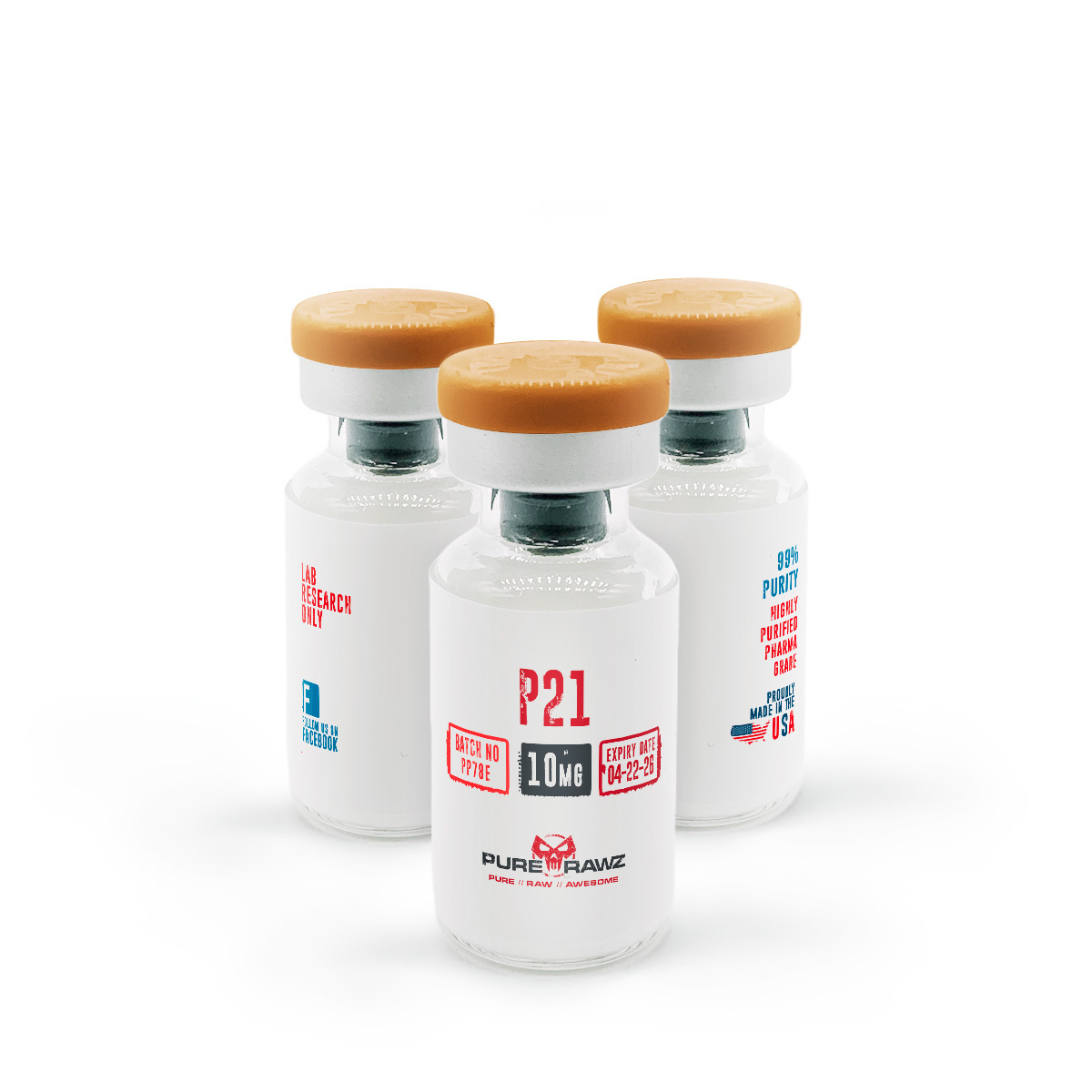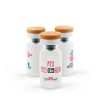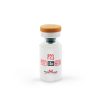P21 (P021)
Price range: $62.48 through $117.26
Earn 62 - 117 points upon purchasing this product.
For optimal stability and integrity, we recommend reconstituting all peptides with bacteriostatic water, as reliability cannot be guaranteed with alternative solutions.
- 1st and 3rd Party Verified for 99% Purity
- Free Shipping on Orders Over $100+
Enjoy 24/7 customer support, 1st & 3rd party verified 99% purity, and free shipping on orders over $100!
Description
What is P21 Peptide?
P21 is a synthetic peptide derived from the human p21^Cip1/Waf1 protein. It is a natural inhibitor of cyclin-dependent kinases (CDKs). In research, it is studied for its role in cell cycle regulation, DNA repair, and tumor suppression.
This product is not approved for human or animal use. It is intended strictly for research purposes only.
Chemical Properties
| Sequence | AC-DGGL(A)G-NH2 |
| CAS Number | 1394011-91-6 |
| Molecular Formula | C30H54N6O5 |
| Molecular Weight | 578.3 g/mol |
| Appearance | White to off-white lyophilized powder |
| Solubility | Soluble in water, DMSO, or dilute acidic solutions |
| Purity | ≥95% |
How does P21 Peptide work?
In research studies, the P21 peptide is explored for its ability to bind CDKs. This interaction may inhibit kinase activity, which prevents cell cycle progression from G1 to S phase. It is often studied in cancer models and DNA responses.
Potential mechanisms studies include:
- Blocking CDK-cyclin complexes in scientific models
- Enhancing p53-mediated cell cycle arrest in research subjects
- Supporting apoptosis in cancer models
Note: All findings are based on preclinical studies. More research is needed to confirm the results.
What are the potential research benefits of P21?
Research on P21 suggests the following experimental benefits:
- Research shows P21 may help study cancer cell proliferation
- It could be used in tumor suppression models
- It could support the investigation of cellular senescence and aging
- P21 is useful in exploring DNA damage repair pathways.
Note: This product is strictly for research purposes and is not approved for human or animal consumption.
Research on P21 Peptide
P21 is in early-stage research. Studies typically involve cellular structures or animal models to understand their functions in cell growth regulation and stress responses.
Researchers investigate how P21 may interact with key regulatory proteins to halt the cell cycle or promote cell death under stress.
Further studies are needed to clarify its full mechanism of action.
What is the best place to buy P21 online for research purposes?
If you want to buy P21 for research, PureRawz is a reliable supplier.
Each purchase includes a reference-grade Certificate of Analysis outlining peptide identity, purity, and concentration for research compliance.
Is P21 legal?
P21 may be legal for research purposes in some regions. Users must comply with local laws and institutional policies.
FAQs
Is P21 safe for human consumption?
No, P21 is strictly for laboratory research. It is not approved by the FDA for human or veterinary use.
What are the side effects of P21?
Since P21 is a research product and it is still under investigation, its side effects are unknown. More research is required to confirm these facts.
What is the shelf life of P21?
The shelf life of P21 is typically 12 months when stored in a cool, dry place. Proper storage helps maintain stability and potency.
How should P21 be stored?
It is best to store this product in a cool, dry place away from direct sunlight. This helps extend the shelf life of the product.
Disclaimer
This information is for educational purposes only and not medical advice. Products are for research use only. Research must follow IRB or IACUC guidelines. Verify information independently before purchasing. By ordering, you agree to our Terms and Conditions. If you are not 100% satisfied with the product you received, please contact us at support@purerawz.co
ATTENTION: All our products are for LABORATORY AND RESEARCH PURPOSES ONLY, not for veterinary or human usage.









Reviews
There are no reviews yet